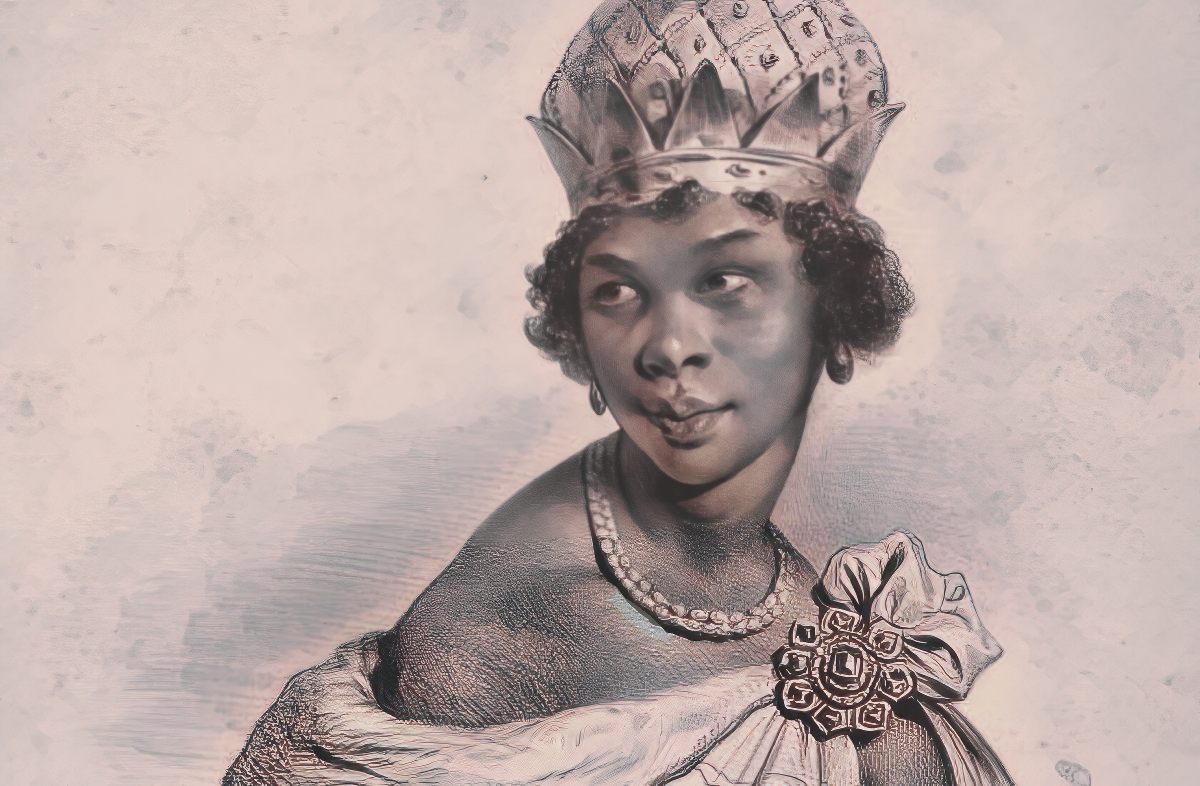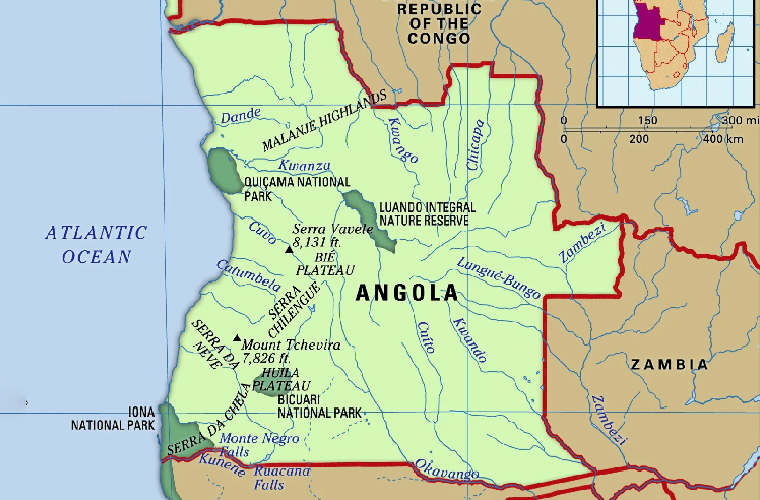Ndongo is an ancient territory born in early modern times. Its traces back to the 16th century. At that time, it was a vassal state of the Kingdom of Kongo. Its founder called Ngola Kiluanje or Ngola Inene was a leader of a Kimbundu speaking group. It is also his name, Ngola, which will inspire the name of the current state, Angola.
Birth and organization of the kingdom
Basically, Ndongo was a political territory tributary to the kingdom of Kongo. Wishing to further emancipate himself, the king began by establishing an embassy in Portugal in 1518. The purpose of this enterprise was to bring in missionaries to recognize the independence of Kongo. A Portuguese mission indeed arrived in 1520. The Kingdom of Kongo put up fierce resistance and the Portuguese had to quickly leave the region. Nevertheless, in 1556, the province of Ndongo appealed again to the Portuguese for help, this time asking for military assistance. Led by Paulo Dias de Novais, this second expedition suffered the fate of the first. It was during a third expedition that the Portuguese ended up sealing agreements with Kongo and Ndongo, thus recognizing the independence of the latter.
Politically, the kingdom was subdivided into 736 political entities with the Sobas as regent. These political entities called Murindas and their leaders were grouped in Senzala, groups of villages that gravitated around the capital Mbanza. Political units are sometimes grouped into provinces. Some even tried to form a kingdom but were quickly taken over by the Ndongo. The social nomenclature consisted of kings and provincial chiefs who were accompanied in the exercise of power by the council of powerful nobles called Macota. The Tendala was the judicial figure of the kingdom while the Ngolambole was the boss of the army.

Rise of the Kingdom
The notoriety of Ndongo has been established in particular thanks to the many conquered territories. Jealous of the development of Ndongo, Portugal attacked the kingdom in 1590. The sovereign of the time, Kabasa, had just forged alliances with his neighbors in Matamba. Together they inflicted a severe defeat on the Portuguese. Not wanting to stop there, the Ndongo decided to launch an offensive and regained control of several Sobas that had fallen into Portuguese hands. In 1622, Ngola Mbandi sent Anne Zingha to Luanda as an emissary, in order to negotiate a peace treaty with the governor of Portugal. During this interview, Anne Zingha stands out as a formidable negotiator and diplomat.
Two years later, her brother died. This is the moment Anne Zingha has been waiting for: she takes power and becomes queen. Her warlike and spy tactics, her qualities as a diplomat, her games of strategic alliances as well as her knowledge of commercial and religious issues enabled her to make the kingdoms of Ndongo and Matamba resist the colonial inclinations of the Portuguese and and the Dutch, until on her death in 1663.
The decline of the Ndongo Empire
After the defeat of 1590, the Portuguese refined their strategy. This consisted in extending their influence along the Kwanza and inserting themselves into the politics of Ndongo. The goal here was to weaken Ndongo’s hold on Kwanza territories such as Kisama. Portugal, therefore, made an alliance with the Imbalanga, a nomadic people engaged in frequent looting in the region. In 1617, Luis Mendes Vasconcelos, the new Portuguese governor invaded Ndongo. Destroyed the capital and pushed King Ngola Mbandi to take refuge on the island of Kindonga. Thousands of Ndongo subjects were taken prisoner and Mendes de Vasconcelos tried unsuccessfully to create a shadow government at the expense of Portugal. In 1647, the Netherlands besieged the kingdom.
King Felipe, the ruler of that time, sent most of the soldiers who defended the territory in Masangano. But the locals were defeated. Despite this defeat, the Dutch were expelled from the kingdom and Filipe turned away from Portugal. He engaged in quarrels about his subordinates and his jurisdiction. He was defeated in the battles of Kisama and Dembos. His successor who was none other than his son also experienced bitter defeats. And the latter had to sign an agreement with Portugal in 1647 recognizing Nzinga’s absolute authority over the territories of Ndongo and Matamba. He returned to the charge in 1670 with a final rebellion that lasted a year. In 1671, the kingdom of Ndongo fell definitively to Portugal and this umpteenth defeat marked the end of this kingdom.

